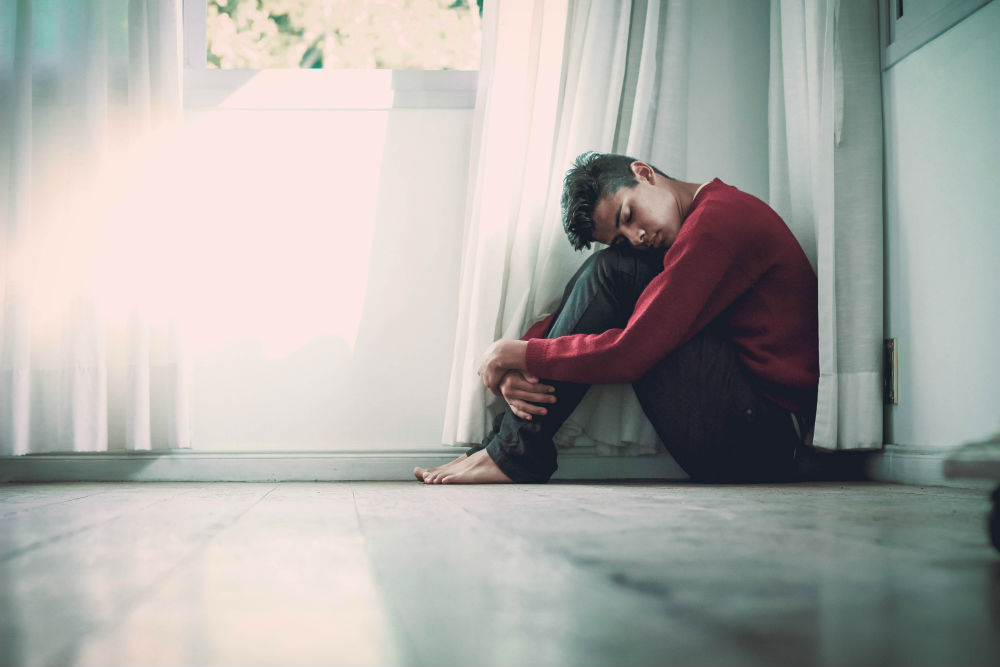According to the Anxiety and Depression Association of America (ADAA), about 85% of college students reported they had felt overwhelmed by everything they had to do at some point within the past year. Approximately 24.5% of college students reported that they were taking psychotropic medication, while 41.6% stated anxiety in college students as the top presenting concern. As you can see, these facts are quite upsetting, which means something is completely wrong with the current educational system.
Adjusting to college life can be challenging, especially when friends change, family is far away, and the environment you were once used to becomes so different. Because of all these factors (and more!), college students are prone to developing college anxiety. Of course, no two students will think the same, or act the same, which is why for every single person depression will manifest itself differently.
We will explain the causes of these symptoms, so be ready to leave us feedback or ask questions!

- Finding a Balance
Moving into a new space means reorganizing one’s life – for once, students must learn how to cook and clean regularly; second, they must make time to socialize and engage in community-based events with – let’s put it bluntly – strangers; and third, they must study regularly and persistently. There’s little to no chance these changes will not affect any student’s life in a more or less obstructive way. This is why college students can easily feel anxious trying to balance school, work, friends, and family, while also trying to figure out how to live their lives.
- Not Getting Enough Sleep
When you must balance all these factors and make time for absolutely everything, there’s a high chance you’ll miss out on sleep. The reason why so many college students become depressed and anxious is that they don’t make enough time for themselves. In case your health is on the line, but tasks are vital to be finished, any assignment writing service trusted by students should be able to help you out. When you get caught up in so many activities and must study so intensively, resting well might be quite inconvenient for your time. However, college students should remember that a good night’s sleep is more important than finishing up an essay and getting sick for it.
- Loneliness
Depression among college students is also caused by feelings of loneliness and solitude. Changing environments also means changing groups of friends, forming new relationships, and bonding with people you’ve never met before. For introverts as well as for extroverts, this can be a challenging experience. According to a 2017 study published by the Foundation for Art& Healing, 64% of college students felt “very lonely” in the previous 12 months, while only 19% of students reported they never felt lonely or isolated. The facts are proving once more that anxiety and depression in college students can be detrimental to academic performance and personal well-being.
- Stress
Academic performance is important, of course, but not crucial to your personal development. If students feel that they cannot bare school anymore, they should take a short break and find themselves. I don’t mean quit – I mean take a three-day weekend vacation and travel to the mountains, practice yoga, meditate, hike, recharge their batteries. High stress will lead to low academic performance and higher rates of anxiety and depression.
- Not Enough Time for Exercise
Besides physical benefits, exercise is important for a healthy state of mind and emotional well-being. If students are caught up in endless assignments and interminable tasks, they won’t have enough time to exercise, which can lead to higher levels of depression and anxiety. Physical activity will not only reduce the risk of heart attacks and make you feel better and more energetic, but it will also block negative thoughts and distract you from daily worries, according to Better Health Channel.
Summary on How to Avoid Feelings of Depression and Anxiety
- Face your problems, don’t avoid them! Acceptance is the first step to living a healthier life. Take small steps, one at a time. Don’t rush yourself, take enough time to deal with your emotions.
- Truly care about yourself. Don’t stay up too late, eat well, exercise, and practice mindfulness in your everyday life. Take enough time for yourself and take breaks if needed. Meditate, practice yoga, take care of your body & soul.
- Find the right resources on campus. College campuses are a great spot to look for help if you are struggling. Don’t be ashamed that you need help – contact your campus’s counseling center and make an appointment or visit the school’s chaplain. If this does not feel like you, open up to a friend and let them truly know you. Test the waters, see how it makes you feel!
Conclusion
Many college students are prone to becoming depressed or anxious during their college years, but that doesn’t mean it is the end of the world. Nowadays, there are multiple resources available for any student. If you feel like you need help, all you have to do is ask. Somebody is definitely going to be there for you. Keep your head high and heart strong!
